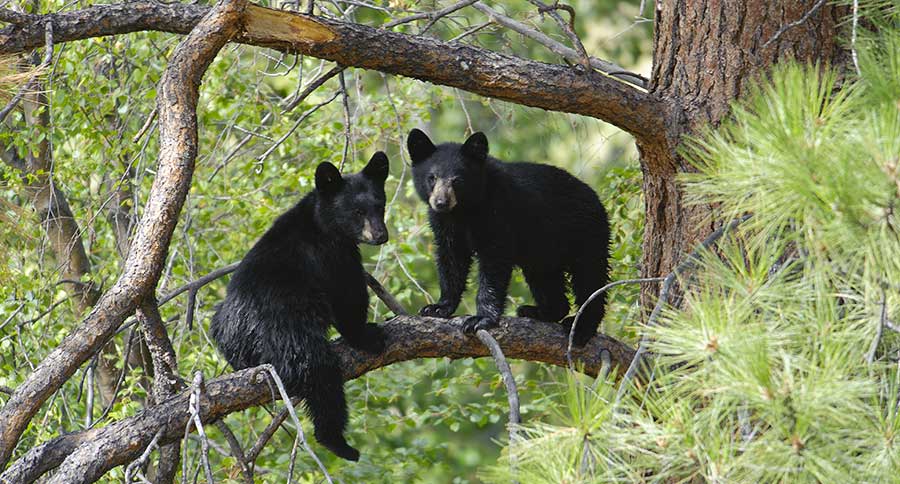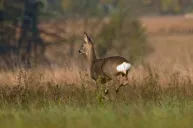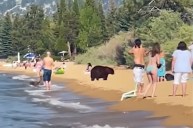A Canadian wildlife officer was suspended when he wouldn't kill bear cubs whose mother was euthanized.
Theodore Roosevelt's refusal to slaughter a helpless black bear was the inspiration for the teddy bear, and cemented the president's reputation as an avid conservationist.
But for Canadian wildlife officer Bryce Casavant, his refusal to kill two bear cubs only earned him an unpaid suspension.
Casavant was summoned to a home on Vancouver Island in British Columbia over the weekend concerning a black bear that had broken into a meat freezer.
Since it had eaten human food for the second time, the bear was killed. Bears are often eliminated if they become habituated, or learn to associate people with food, as they pose a greater risk for coming into conflict with humans.
The mother bear had two cubs in tow, which Casavant found had scaled a nearby tree and were calling for their mother. The wildlife officer called the local fire deparment, which had a rescue specialist scale the tree and retrieve the cubs.
Despite instructions to also kill the bear cubs, Casavant sedated them and transported them to the North Island Wildlife Recovery Association, a rescue center that reintroduces animals to the wild.
According to Casavant, there was no need to kill the cubs, since there was no proof they'd been fed human food and become habituated.
Because of his disobedience of an order, Casavant was initially suspended without pay. He has declined to comment further on the case. On Wednesday afternoon, the BC Government and Service Employees' Union announced that Casavant's pay had been reinstated, but his suspension would remain.
Canadians and animal activists worldwide have rushed to Casavant's defense. An online petition started by the North Island Wildlife Recovery Association demanding Casavant's reinstatement has collected over 100,000 signatures as of Friday morning.
British Columbia's Ministry of Environment is currently conducting an investigation into the circumstances leading to the suspension.
"This is a very sad and unfortunate situation," said Environment Minister Mary Polak in a statement. "Although conservation officers must sometimes put down wild animals for the safety of the public and the welfare of the animal, we understand how difficult it is for all involved."
She said the decision to relocate or destroy an animal usually involves biologists and a wildlife veterinarian in addition to a conservation officer.
However, some wildlife experts have also come to the defense of the kill order. In an interview with CBC News, Barrie Gilbert, a retired biologist, said the response by the public is sentimental, but not logical. Gilbert notes that cubs only have a 50 percent chance of survival during the first year with their mother, and witnessing their mother raid a human residence can habituate them. In addition, bear populations are not threatened and relocation efforts are prone to failure.
As for the bear cubs rescued by Casavant, staff at the rescue center say they are adapting well to their new environment and show no signs of habituation. They plan to reintroduce the bears to wild as soon as next summer.
NEXT: Baby Fox Can't Resist Tin Can, Desperately Needs Some Assistance [VIDEO]
WATCH: USFWS: PLEASE DON'T RELEASE YOUR BALLOONS




